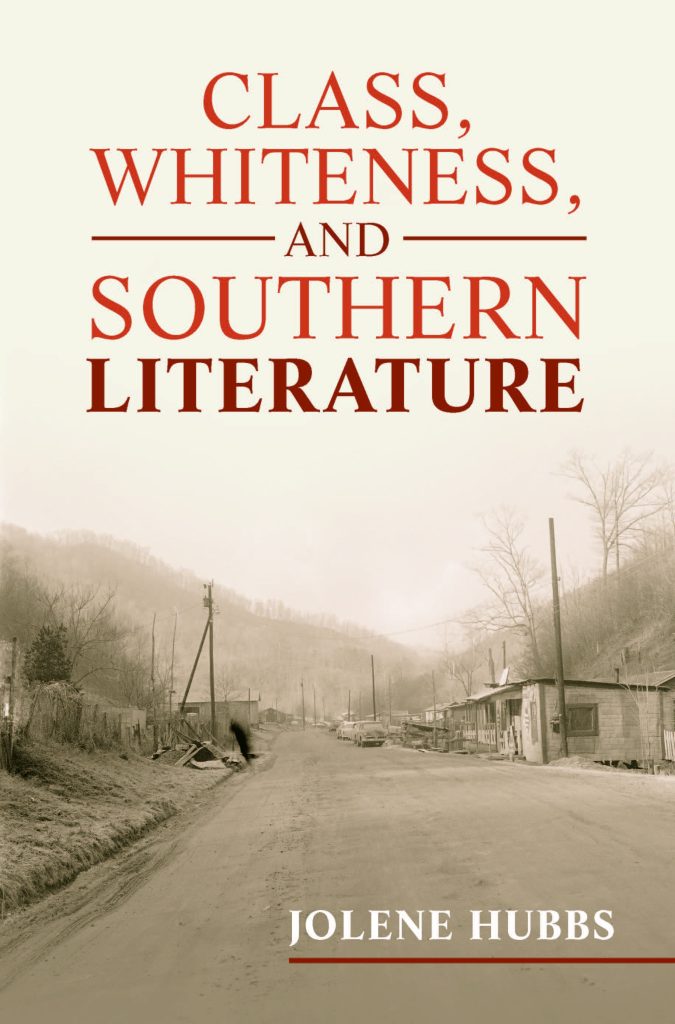What are you reading this summer? Here are six books by A&S faculty from several departments:

Class, Whiteness, and Southern Literature
By Jolene Hubbs (American Studies, jhubbs@ua.edu)
“Why do poor white people figure prominently in so many southern novels?” prompted Dr. Hubbs. “In the same vein, why are figures like Mark Twain’s Huck Finn and William Faulkner’s Snopeses and Bundrens and Harper Lee’s Ewells among the best-known characters from southern literature? These are questions I set out to answer in my book Class, Whiteness, and Southern Literature, which explores the role that representations of poor white people play in shaping both middle-class American identity and major American literary movements and genres across the long twentieth century.”
Audacious Agitation: The Uncompromising Commitment of Black Youth to Equal Education after Brown
By Vincent Willis (New College, vwillis@ua.edu)
Audacious Agitation explores what made it difficult for educational equality to become obtainable after the 1954 Brown v. Board decision. Importantly, Audacious Agitation highlights the powerful agency and activism of young Black students who sought to enforce equality and increase opportunity for themselves through the educational system.

Conservatism in a Divided America: The Right and Identity Politics
By George Hawley (Political Science, ghawley@ua.edu)
“This book was a natural extension of my previous research, which focused on both the mainstream conservative movement and its right-wing opponents, especially those opponents calling for a more aggressive variety of identity politics,” explained Dr. Hawley. “I wanted to examine at how the conservative movement has historically approached these issues. Conservatives today insist that they reject all forms of identity politics, usually emphasizing their commitment to classical liberal values. I find that this is not really true. At the same time, I reject the idea, promoted by many progressives, that conservative rhetoric has never been anything but a cover for maintaining unjust privilege. The story is more complicated than that. The claim that “all politics is identity politics” has some merit, but identity is a complex phenomenon. It is made even more complicated by the fact that partisanship is increasingly its own form of identity.”
Women of Piracy
By Brittany VandeBerg (Criminology and Criminal Justice, bvandeberg@ua.edu)
By examining maritime piracy operations from the 16th century to present day piracy off the coast of Somalia, Women of Piracy ignites a broader discussion about the various cultural, social, historical, and economic forces that create opportunities for women to participate in maritime piracy and counter-piracy.

Mapping Historical Las Vegas: A Cartographic Journey
By Joe Weber (Geography, jweber2@ua.edu)
“Las Vegas has a long and rich history that extends far beyond the clichés of ‘sin city’, the Mafia, Elvis, or mindless urban sprawl,” outlined Dr. Weber. “In Mapping Historical Las Vegas: A Cartographic Journey I used the geographer’s greatest tool, the map, to explore what Las Vegas was like in 1865, 1905, what lies beneath the waters of Lake Mead, and how unbuilt projects and schemes might have produced a very different city. The book contains a series of maps based on a wide range of data that explore these topics and more. Readers will learn about the development of the city, what has been lost as the city grew, and what exists beyond the Strip and over the mountains that surround the city.”
The Gospel of Rot: A Novel
By Gregory Ariail (English, gariail@ua.edu)
The Gospel of Rot is a creative intervention into the Appalachian imaginary, steeped in the Southern gothic. It explores lesser-known, idiosyncratic, and historically taboo subjects: Biblical apocrypha, heterodoxy, mysticism, queerness, Cherokee lore, and the weird and the fantastic. It strives to upend and complicate any static conception of the Appalachian experience.